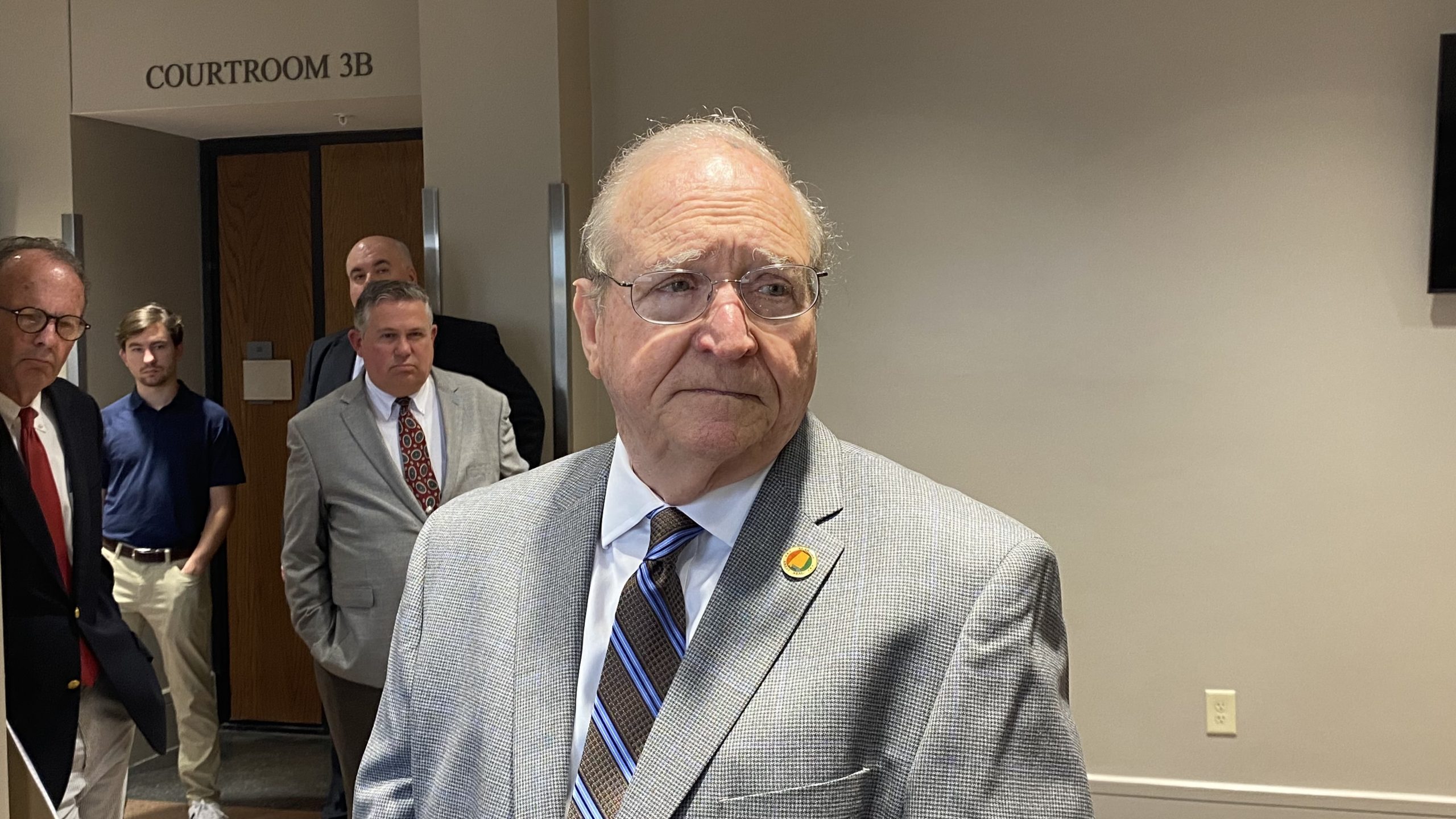The parties involved in a lawsuit against the Alabama Medical Cannabis Commission met Thursday at the Montgomery County Courthouse for a status conference and the result is that things remain mostly where they left off two weeks ago.
More parties have joined the case since then, including an applicant siding as a defendant due to being one of the five companies already awarded a license by the commission.
Montgomery Circuit Judge James Anderson told counsel for the Sustainable Alabama that he is not dismissing their concerns, but finds them premature currently as the commission outlined its plan to void the awarded licenses and choose to award licenses anew at its August 10 meeting.
Counsel for one of the cultivator license applicants asked Anderson to lift the stay for the “downstream licenses” so that they could move ahead with their process, but Anderson also found that motion to be premature.
John McMillan, director of the commission, confirmed information reported by APR’s Josh Moon during a press gaggle after the status conference, including the fact that the errant scores include scoring both from the third-party evaluators from the University of South Alabama and from the commissioners themselves.
Attorney William Webster said during the status conference that the commission doesn’t expect any problems with the evaluations themselves, but merely in the “tabulation” or “collation” of the scores.
It isn’t clear who was responsible for combining the scores of the evaluators and commissioners, or how much weight each score had.
“This is a team effort between the commission and the University of South Alabama,” McMillan said. “And the whole team is responsible for whatever that was good or bad.”
There was also discussion during the meeting of a “big four accounting firm” that has been brought in to analyze the scoring, but McMillan would not reveal what company that is—it will be made public during the commission’s regularly scheduled meeting on July 10.
The commission has set a target date of Aug. 10 to void the previous licenses awarded and restart the selection, with an expectation to have all the information for the accounting firm by the end of July.
“The purpose of us voiding all of the previous rulings would be to set everyone back on that same level playing field so that from that day forward if there was a disappointed party they would have the same right to appeal,” Webster said.
Counsel for another rejected applicant argued that it is mandatory under the law that the commission does site visits before awarding licenses.
“There’s a difference between awarding a license and issuing a license and the inspection that must be done is to be done before the issuance,” Webster responded. “You can’t inspect 90 different applicants, we simply don’t have that time. But after that time period after it is confirmed who is being awarded a license, there will be inspections.”
McMillan told media after the conference that if an inspection reveals the applicant is not doing on the ground what has been stated in the application and cannot meet the required 60-day turnaround time to begin the cultivation process, that license could be revoked and made available to another applicant.
McMillan also blamed lawsuits for delaying the process.
“I hope at some point something is going to prevail to consider the patients that desperately need this product, instead of how hard can I get after greenbacks,” McMillan said.
Will Somerville, counsel for Alabama Always, once again argued that the commission is relying too heavily on the data from the third party evaluators and is abdicating its duty to decide which applicants deserve licenses.
“Mr. Somerville speaks confidently out of ignorance,” Webster retorted. “The situation is not at all as he would specify it. Every aspect of what the commission was charged to do by the Legislature was done … the Commission makes the ultimate decision as to what that (third party) scoring means, how its weighed and evaluated.”
McMillan also cited concerns about the character and backgrounds of some of the potential applicants.
“I think we’re going to take a harder look—we’ve been extremely lenient in some of the things like character and background checks,” McMillan said. “Character has been a very serious issue.”
No action is expected to be taken at the Commission’s July 10 meeting other than to ratify the stay already in place to ensure compliance with Alabama’s Open Meetings Act.


















































